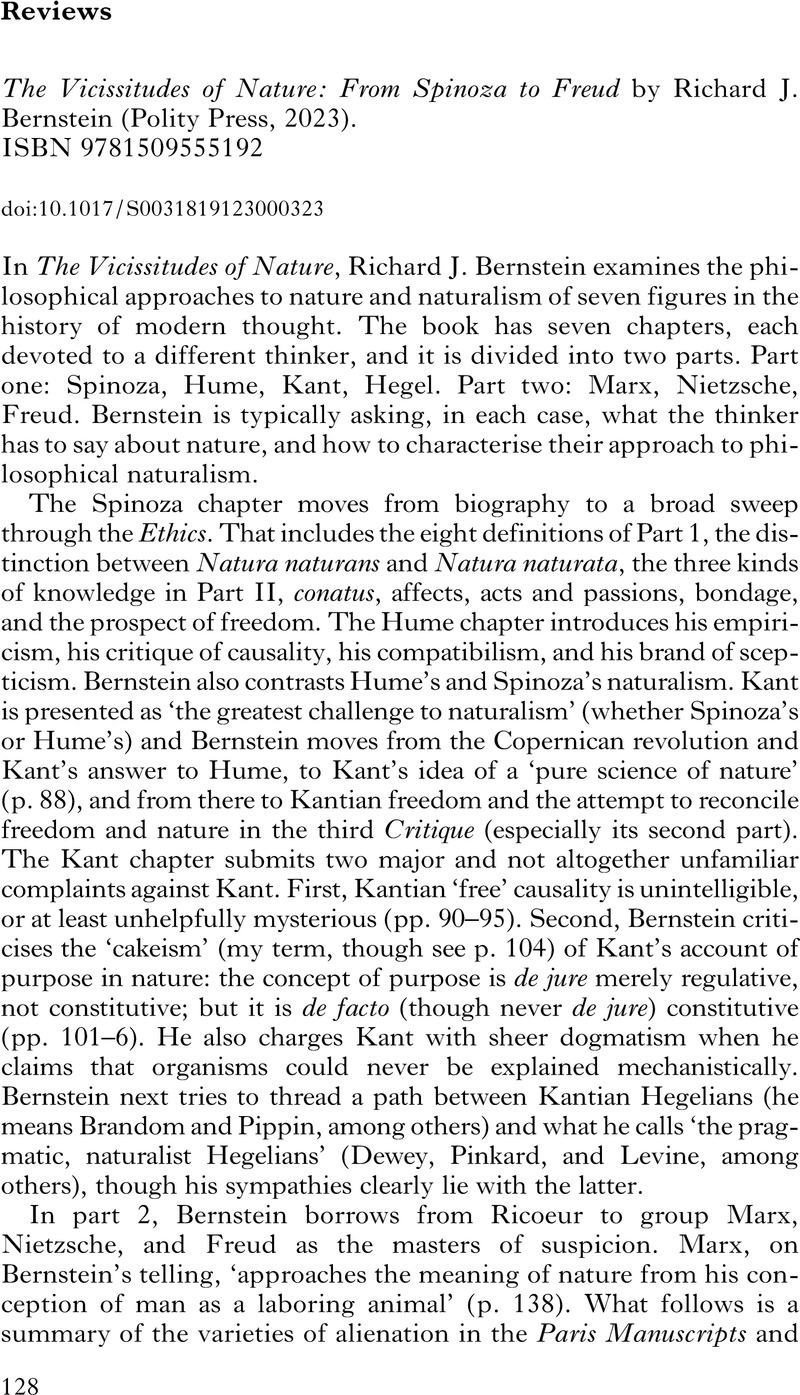No CrossRef data available.
Published online by Cambridge University Press: 31 October 2023

1 Though he has elsewhere, for example in Bernstein, Richard J., ‘Pragmatic Naturalism: John Dewey's Living Legacy’, Graduate Faculty Philosophy Journal, 4:2 (2019): 527–94CrossRefGoogle Scholar.
2 Bernstein is working from and citing Rouse, Joseph, Articulating the World: Conceptual Understanding and the Scientific Image (Chicago: University of Chicago Press, 2015, p. 3)CrossRefGoogle Scholar.
3 Here, I am borrowing from and condensing some of my own analysis of Nietzsche. See Stern, Thomas, Nietzsche's Ethics (Cambridge: Cambridge University Press, 2020)CrossRefGoogle Scholar for further evidence and discussion.